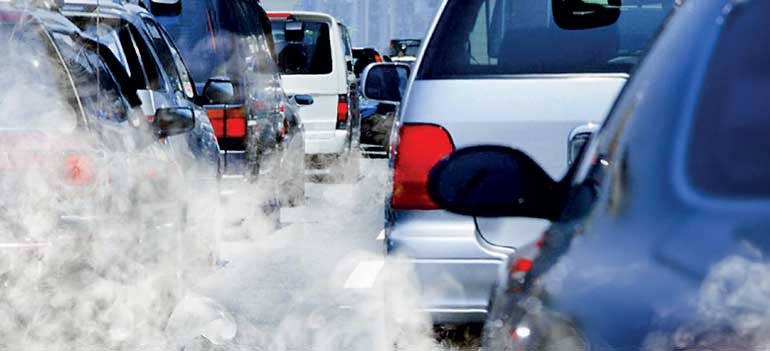
News Today: Significant drop in Sri Lanka air quality caused by vehicle emissions, weak regulations, and failures in public transport upgrades
Sri Lanka is facing a serious decline in air quality, with cities including Colombo and Kandy experiencing alarming levels of pollution mainly caused by vehicle emissions, according to Minister of Transport Bimal Rathnayake.
Addressing Parliament yesterday, the Minister stressed that one of the key reasons for the decline is the failure to modernize public transport systems, which has left the nation overly dependent on private vehicles. He added that while vehicle emission tests are mandatory, irregularities and malpractice within the institutions conducting these tests have undermined their effectiveness.
“It is essential to conduct vehicle emission tests. There may be wrongdoings by certain institutions, but the initiative itself is necessary and must be strengthened,” Rathnayake said.
He explained that the government has begun carrying out sudden emissions checks while also monitoring air quality in high-risk urban areas. Observations revealed that emissions tend to spike near traffic lights, largely due to technical issues and drivers revving engines while waiting for signals to change.
To address this, the Ministry installed traffic light timers in Colombo, aimed at reducing unnecessary acceleration and thereby improving air quality.
The Minister also admitted that the current emissions testing system suffers from weak regulatory oversight, allowing permits to be obtained through malpractice. However, he assured that the existing agreement with the company handling emission tests will expire in December 2026, after which reforms will be introduced to close loopholes and strengthen accountability.
Environmental experts warn that without urgent reforms, vehicle emissions will continue to be a primary contributor to urban air pollution, threatening both public health and the environment.
The government’s response highlights the need for tighter regulations, transparent emission testing, and better public transport infrastructure to reverse the trend of worsening air quality in Sri Lanka.




Leave A Comment